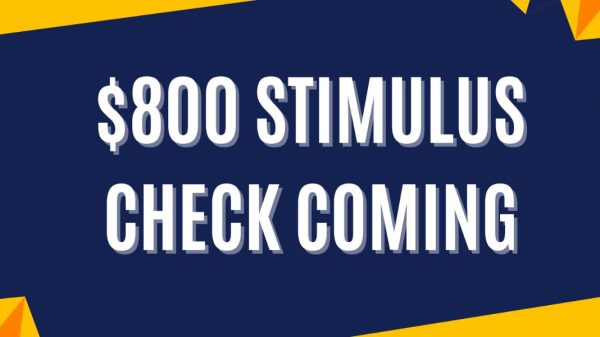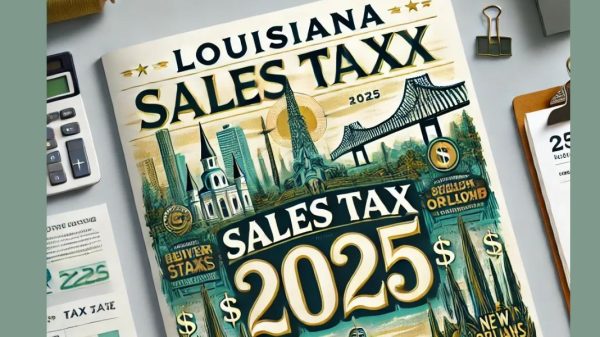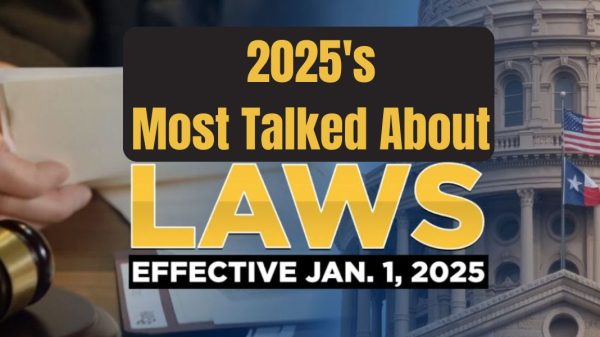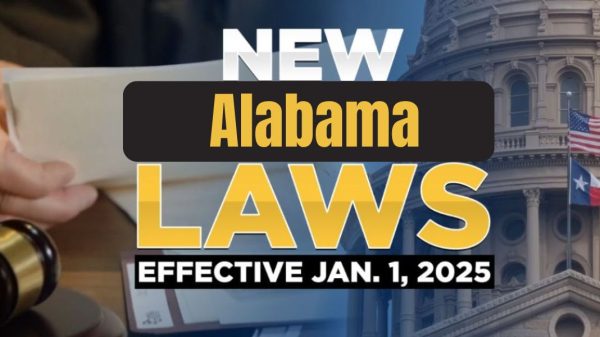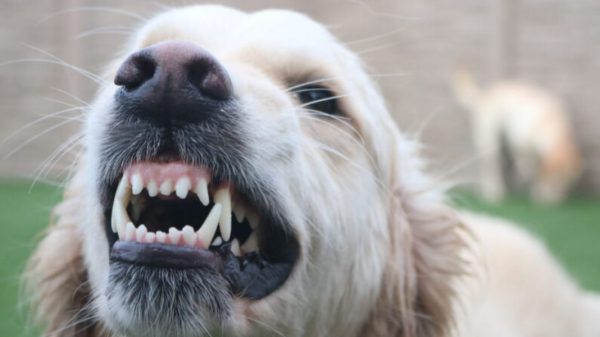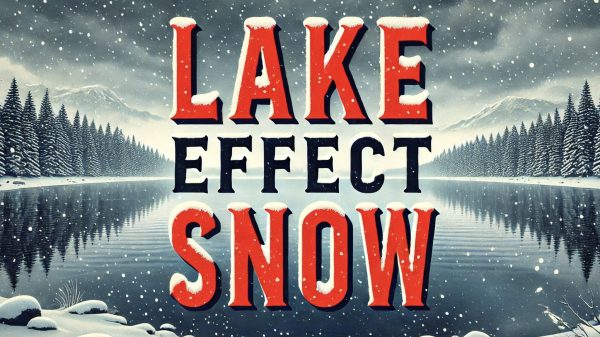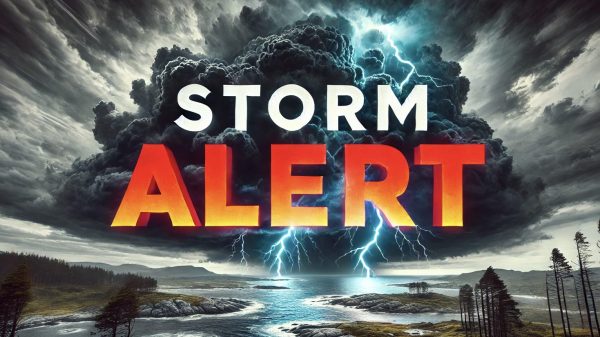
Republican Presidential Candidate Donald J. Trump smiles as he takes the stage during the final day of the Republican National Convention in Cleveland on Thursday, July 21, 2016. (AP Photo/J. Scott Applewhite)
If Donald Trump claims the election was rigged, might he face legal action? As the Michigan Supreme Court considered the cases of two right-wing activists who disseminated misleading material to black voters, one of the justices wondered about it.
The court debated the free-speech ramifications of prosecuting political provocateurs Jack Burkman and Jacob Wohl during an oral argument on Thursday. The two are accused of sending tens of thousands of robocalls before the 2020 election, warning black neighborhood residents that they would be targeted by debt collectors and might have to get “mandatory vaccinations” if they chose to vote by mail.
Richard Viviano, a Republican appointment to the court, questioned out loud if Burkman and Wohl could be charged under the same state legislation that was used to prosecute Trump for his repeated claims that the absentee voting process is “rigged.”
The strategies Burkman and Wohl are said to have employed to help Trump obtain African American votes were deemed “despicable” by Viviano, yet the judge expressed worry about the law’s broad application, which forbids election-related manipulation.
The statute that was utilized to prosecute the two, according to Viviano, forbids more than merely employing “corrupt means or devices” to “deter” someone from casting a ballot. Additionally, it prohibits using such a plan to “influence” a voter. That concept might apply to a variety of deceptive or fraudulent assertions made during an election, according to the justice, who was appointed by former Republican governor Rick Snyder.
According to Michigan Deputy Solicitor General Eric Restuccia, the law forbids making false claims regarding the voting process; it makes no mention of claims that influence which candidates receive support.
Restuccia declared, “This is not a statute designed to stop political debate.” “There is no constitutional protection for false or deceptive information regarding voting procedures.”
Viviano didn’t seem to be happy with the prosecution’s explanations. The judge, who claimed to be attempting to be “bipartisan,” remarked, “I have to say: I just see you diverting off in different directions.” He raised worries about prosecutors monitoring political discourse.
While at least one member joined Viviano in urging the state’s attorney to respond to Viviano’s inquiries, it was not immediately apparent how many other justices on the court agreed with Viviano’s concerns. There are presently three Republican and four Democratic appointments on the court.
Timothy Doman, Burkman’s attorney, said that although the state might outlaw knowing false information on how to vote, the wording of the statute that his client was accused of breaking is too ambiguous.
“In the manner that the attorney general has advocated, false statements about the time, place, and manner [of voting] could be proscribed,” Doman stated. “This statute is not the problem.”
Court records show that in the summer of 2020, Burkman and Wohl purchased a vendor to place over 85,000 robocalls, mostly to black voters in Michigan, Ohio, Illinois, Pennsylvania, and New York.
“While mail-in voting seems like a terrific idea, did you realize that voting by mail contributes your personal information to a public database that credit card companies use to recover unpaid bills and police departments use to locate outstanding warrants? The audio file stated. “The [Centers for Disease Control and Prevention] is even advocating for the tracking of individuals for required vaccinations using information from mail-in voting. Refrain from being coerced into providing the man with your personal details. Keep yourself safe and watch out for mail-in votes.
Burkman and Wohl entered guilty pleas to comparable counts in Ohio last year, which were related to the same wave of calls. They were all given two-year probation sentences, fines of $2,500, and community service requirements of 500 hours apiece, which included registering voters in Washington, D.C.
Burkman and Wohl were facing a possible $5.1 million penalty from the Federal Communications Commission in 2021 for allegedly transferring over 1,100 calls to mobile phones without the owners’ permission.
Burkman and Wohl case
An Ohio judge has mandated that two men be convicted of fraud for attempting to register black voters in low-income areas of Washington, D.C. with fraudulent robocalls before to the 2020 election, do 500-hour voter registration drives.
Both Jack Burkman, 56, of Arlington, Virginia, and Jacob Wohl, 24, of Irvine, California, entered guilty pleas to a single felony count of telecommunications fraud last month. The calls warned people that they might be arrested or forced to get vaccinations based on information they sent in with their mail-in votes.
According to Cleveland.com, Cuyahoga County Common Pleas Court Judge John Sutula also imposed a $2,500 fine and a two-year probationary period on each of the individuals. He commanded them to be placed under house confinement starting at 8 p.m. for six months of that time. every day.
Sutula remarked, “I think it’s a despicable thing that you guys have done,” drawing parallels between their acts and the brutality black voters in the South were subjected to in the 1960s.
A voice broadcast service was accused of arranging approximately 85,000 robocalls to predominantly Black neighborhoods in Ohio, Michigan, New York, Pennsylvania, and Illinois in the lead-up to the 2020 general election. The two were charged with multiple counts of telecommunications fraud and bribery in October 2020.
The two, according to the prosecution, were in charge of 3,500 calls to people in Cleveland and East Cleveland.
Wohl stated before the court that he wanted to “echo” Burkman’s words of remorse and embarrassment over the entire situation.
According to prosecutor Michael O’Malley, the defendants “attempted to disrupt the foundation of our democracy,” hence the penalty was warranted.
The Federal Communications Commission has fined the men $5.1 million and filed a lawsuit against them in federal court in New York City. Wohl and Burkman are contesting criminal allegations brought in Detroit that are related to a similar fraudulent phone campaign that was directed at African American voters.





















